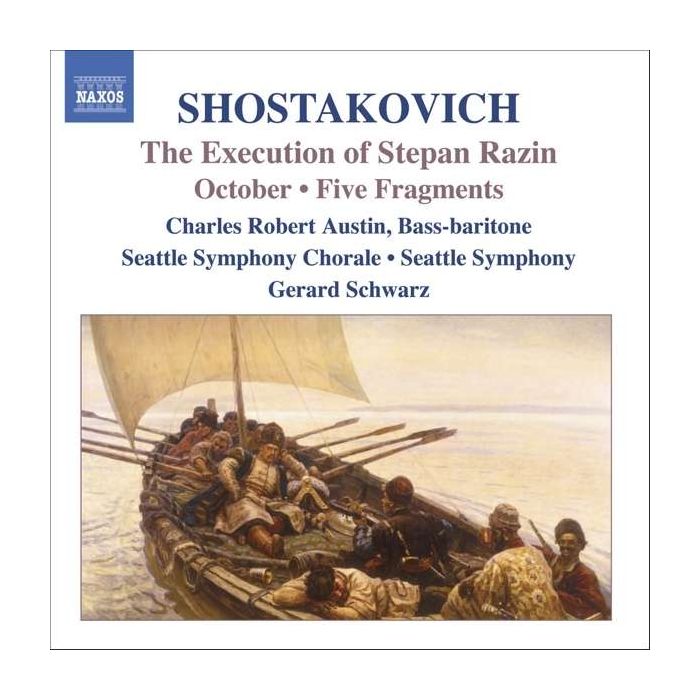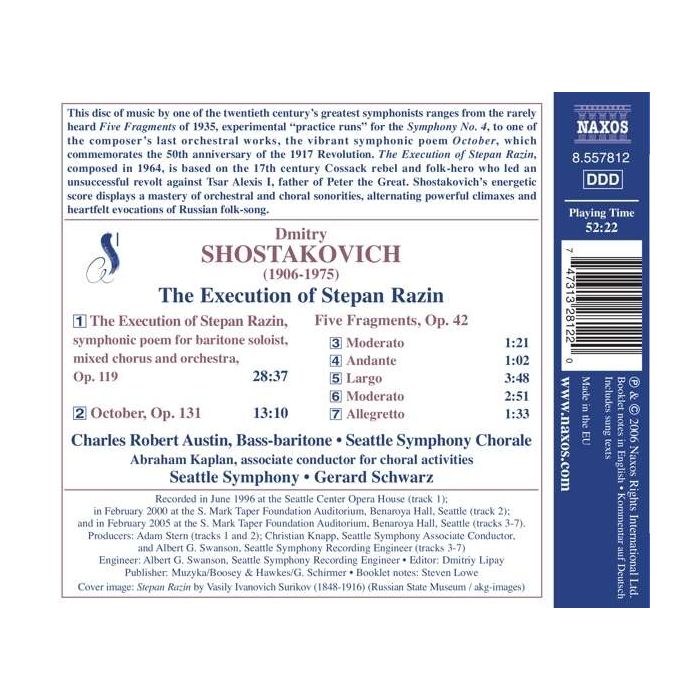
(Produkt nie został jeszcze oceniony)
kompozytor
Shostakovich, Dmitry
tytuł
SHOSTAKOVICH: The Execution of Stepan Razin
wykonawcy
Austin, Charles Robert, Kaplan, Abraham, Schwarz, Gerard, Seattle Symphony Chorale, Seattle Symphony Orchestra
nr katalogowy
8.557812
opis
The performance of Stepan Razin, Shostakovich's symphonic poem for baritone, mixed choir and orchestra, is a deliberately ambiguous work that operates on two levels. Its manifest content refers, to use Freud's term, to the 17th century Cossack rebel who led an unsuccessful revolt against Tsar Alexis I, the father of Peter the Great. Captured, tortured and finally decapitated in 1671, Razin became posthumously a popular hero in 1671, a symbol of the oppressed and disenfranchised individual who fought against an entrenched, brutal power. As the son of the revolution, Shostakovich composed this cantata-like work to celebrate the life of Rasin and thus the lives of all ordinary people who fought the great, ongoing struggle against oppression. At the same time, the latent content (to continue with Freud's phraseology) is indicative of the Soviet oppression embodied by Stalin and his followers.
One of Shostakovich's last orchestral works, written fourteen years after Stalin's death in March 1953, was the tone poem October op. 131, which was premiered in October 1967. The score of 1967, which commemorates the golden anniversary of this iconic event, is a short tone poem that, like several other works, contains quotations from Shostakovich's earlier works, in this case the Partisan Song from the score of a film from the mid-1930s, Volohoev Days, and another from the Tenth Symphony. An opening section, Moderato, serves as an introduction to an Allegro that builds up to a feverish march. (Szostakowicz)
nośnik
CD x 1
wydawca
Naxos
data wydania
6.02.2006
EAN / kod kreskowy
747313281220
58,00 zł
Produkt dostepny w niewielkiej ilości.
Wysyłka w ciągu 3 dni roboczych
Darmowa wysyłka dla zamówień powyżej 300 zł!
Darmowy kurier dla zamówień powyżej 500 zł!
sprawdź koszty wysyłki









